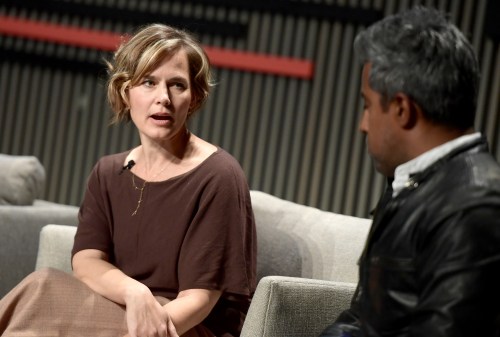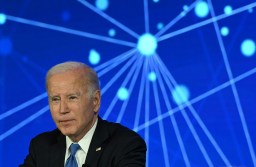Obama increases IT spend to $89B in 2017 budget proposal

President Barack Obama has proposed a small increase in the federal government’s IT budget, including over $3 billion that would be used to replace legacy systems that are costly to maintain and increasingly becoming a cybersecurity liability.
The 2017 budget proposal calls for $89.8 billion for IT, a 1.3 percent increase over the 2016 request. Civilian agencies would get $51.3 billion, while $38.5 billion would go to defense systems.
Republicans in Congress declared the budget dead on arrival and said they would not even hear testimony from OMB Director Shaun Donovan, an unprecedented step.
Nonetheless, the budget highlights a number of initiatives the government has taken to rein in IT spending, including a focus on shared services, open source, agile development and implementation of the Federal IT Acquisition Reform Act.
In a call with reporters on Tuesday, federal CIO Tony Scott touted that the government now spends 8.2 percent of its IT budget on provisioned services like cloud computing, uses agile development for half of its software projects and spends 25 percent less on hardware services than compared to 2010 budget levels.

Spending levels on federal IT 2001-2015. (Source: OMB)
To drive more modernization, President Barack Obama proposed a $3.1 billion special fund that would operate out of the General Services Administration, with agencies needing to hit certain modernization benchmarks to continue receiving funds. Scott said the fund will also encourage agencies to use governmentwide shared services instead of building their own solutions from scratch.
An appendix provided with the budget outlined more details for how this system would work:
A project review board, comprised of experts in IT acquisition, cybersecurity, and agile development, will review agency business cases and select projects for funding to ensure prioritization of projects with the highest risk profile, government-wide impact, and probability of success. The board will identify opportunities to replace multiple legacy systems with a smaller number of common platforms – something that is difficult for agencies to do when acting on their own with limited insight into other agencies’ operations. As a result, the central fund will achieve a far greater and more rapid impact than if the funds were allocated directly to agencies. In addition, a team of systems architects and developers will provide additional oversight and development capabilities to make these major changes. The revolving fund will be self-sustaining by requiring agencies to repay the initial investments through efficiencies gained from modernization, ensuring the fund can continue to support projects well beyond the initial infusion of capital.
In a call with reporters related to the cybersecurity national action plan, Scott said this modernization fund would work in concert with FITARA but did not provide any further detail.
In a Wall Street Journal op-ed posted on Tuesday, Obama said “no successful business could operate” the way government does when it comes to buying and using IT systems.
“It is no secret that too often government IT is like an Atari game in an Xbox world,” he wrote.
While the budget request and the cybersecurity action plan represent a strong policy push for the Obama administration, Scott said more directives will be coming in the months ahead. During his Tuesday call with reporters, Scott said final A-130 revisions, an open source policy and a data center optimization initiative memo will all be coming out shortly.
Other highlights:
- As part of the $19 billion proposed for cybersecurity, the Department of Homeland Security has been given $471.1 million in order to maintain Einstein, the intrusion protection system that protects federal agency networks. There is also $274.8 million for the Continuous Diagnostics and Monitoring program, which is aimed at further strengthening the security of .gov networks.
- OMB will look to expand the model of U.S. Digital Services to 25 agencies, with the hopes of up hiring to 500 technology and design experts to serve two-year terms. OMB will be working with OPM to create flexible hiring practices in order to attract this talent.
Contact the reporter on this story via email at greg.otto@fedscoop.com, or follow him on Twitter at @gregotto. His OTR and PGP info can be found here. Subscribe to the Daily Scoop for stories like this in your inbox every morning by signing up here: fdscp.com/sign-me-on.




